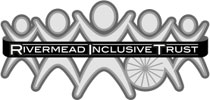Maths
Intent
At Walderslade we have adopted a mastery approach to the teaching of Maths and we believe that everyone can achieve and can master maths at their own level. In order to create independent, well equipped mathematicians we give all children full access to the curriculum. It is essential that all children are equipped with the skills needed to apply their learning in the wider world. Through following the mastery approach we aim to instill this confidence and competence in maths.
Through delivering lessons that are creative, engaging and challenging, we want children to make connections across mathematical ideas to develop their fluency, mathematical reasoning and competence in solving increasingly sophisticated problems. We intend for our pupils to see mathematics as a subject which permeates into all areas of life and encourage them to be able to apply their mathematical knowledge to science and other subjects.
At each stage of learning, pupils should be able to demonstrate a deep, conceptual understanding of the topic and be able to build on this over time.
Implementation
All year groups from Year 1 to 6 follows the same sequence of teaching in their lessons – fluency, reasoning and problem solving. Alongside this, as a child progresses through Walderslade, they develop their deep understanding of a concept by following the CPA approach. When misunderstanding arise, swift ‘in-class’ action is the first port of call for the teachers with longer term interventions occurring for the necessary children.
We supplement our use of White Rose Small Steps with material from NCETM, Focus and Nrich. Underpinning all of these is a higher level of questioning to encourage the children to think for themselves.
Concrete, Pictorial, Abstract (CPA)
Concrete manipulatives are often used to help low-ability students to work through questions, but teachers also use them to encourage the transition to pictorial and abstract. Concrete manipulatives and pictorial representations are a common feature of KS1 classrooms but they are encouraged throughout the school. To encourage mastery in the children, there doesn’t have to be a linear progression from concrete to pictorial to abstract. Instead, teachers apply a cyclical approach. For example, even when a pupil has worked out the answer using an abstract method, it is worth asking them to use concrete manipulatives to convince others that they are correct.
When teaching for mastery, the CPA approach helps learners to be more secure in their understanding, as they have to prove that they have fully grasped an idea. Ultimately, it gives pupils a firm foundation for future learning.
Fluency, Reasoning, Problem Solving
Along with CPA, we consider this approach an essential part in developing ‘Masters’ of Maths. Fluency lessons help a child develop their efficiency and accuracy with the mechanics of the concept and gives them the skills and confidence to move onto reasoning and problem solving. Through all three stages, talk is an integral part of a Maths lesson with the children being encouraged to reason, justify and explain their thinking verbally.
Problem solving questions are often open-ended, with more than one right answer. Problem solving is an important skill for all ages and abilities and, as such, is taught explicitly. It is therefore useful to have challenges like these as part of every lesson. Children of all abilities have access to reasoning and problem solving and it is not intended just for the ‘more able’ students. The children are encouraged to use their skills to think about different ways to solve problems and are often faced with questions where there is more than one possible answer.
We believe by following the route of CPA and fluency, reasoning, problem solving that we will instil a deep conceptual understanding in the children.
White Rose - Small steps
At Walderslade we utilise the White Rose scheme to structure our curriculum. It splits the curriculum into small conceptual steps that enable the children to build their knowledge in a gradual, but challenging, environment. It promotes the route from fluency to problem solving and ensures a consistent approach across the school. Teachers also use NCETM, Focus and Nrich to develop and enhance the curriculum.
















